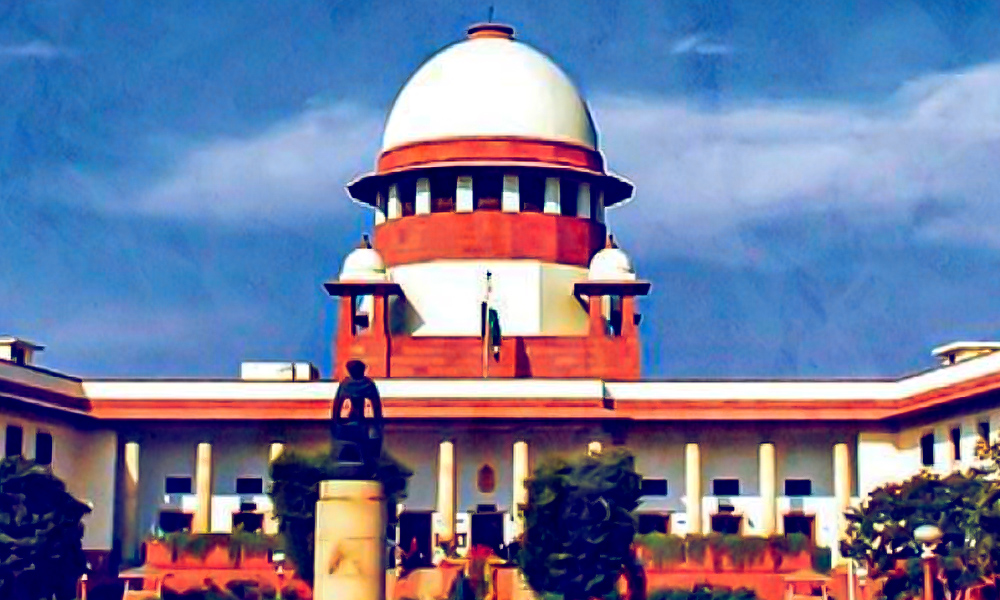
Image Credit: The New Indian Express
'Cannot Discuss Victim's Dress, Suggest Tying Rakhi': Top Court's Direction On Sexual Offence Cases
Writer: Navya Singh
Navya writes and speaks about matters that often do not come out or doesn’t see daylight. Defense and economy of the country is of special interest to her and a lot of her content revolves around that.
India, 19 March 2021 4:52 AM GMT | Updated 19 March 2021 10:00 AM GMT
Editor : Shweta Kothari |
A broadcast turned digital journalist, Shweta Kothari heads the newsroom at The Logical Indian. She has previously worked with CNBC and NewsX as a news anchor and senior correspondent. Shweta holds a masters degree in journalism from the university of Sussex, UK and started her career with work placement with BBC in Scotland.
Creatives : Rajath
A free spirit who find meaning in life with the virtue of creativity and doing job par its excellence, animal lover and traveller by heart.
The directions issued by the SC mentioned that bail conditions should not suggest or permit contact between accused and victim, rather, it should seek to protect the victim, not discuss the complainant's behaviour, dress, past conduct or morals.
In a strict order, the Supreme Court on Thursday, March 18, ruled that courts should not suggest any steps towards compromise such as marriage between accused and complainant in cases of sexual abuse.
A bench of justices A.M. Khanwilkar and S. Ravindra Bhat issued guidelines for courts to follow while passing bail orders in cases dealing with crimes against women, reported The Print.
The top court issued the order while scrapping the July 2020 order of the Madhya Pradesh High Court that released a man, accused of sexual assault, on the condition that he would get a rakhi tied by the complainant.
On the MP high court judgment, the SC said "using rakhi tying as a condition for bail transforms a molester into a brother by a judicial mandate".
"It is beyond any court's jurisdiction and power to impose such a condition or even suggest a compromise in cases of this nature," SC said.
The top court also directed courts to avoid the use of phrases or expressions that reflect stereotypical or patriarchal notions about women and their place in society. "Bail conditions must be in strict accordance with the requirements under the Criminal Procedure Code (CrPc)," the Supreme Court said.
"Judges especially should not use any words, spoken or written, that would undermine or shake the confidence of the survivor in the fairness or impartiality of the court," the top court said.
Additionally, the SC passed a slew of directions for courts to follow when bail orders are delivered.
"The act perpetrated on the survivor constitutes an offence in law, and is not a minor transgression that can be remedied by way of an apology, rendering community service, tying a rakhi or presenting a gift to the survivor," the court said.
The directions issued by the SC mentioned that bail conditions should not suggest or permit contact between accused and victim, rather, it should seek to protect the victim, not discuss the complainant's behaviour, dress, past conduct or morals.
The bench also said that courts must avoid expressing any stereotype opinion about women, during proceedings or in the judicial order.
Expressions that should not find their way into any verdict include phrases such as "women are physically weak and need protection", "women are incapable of or cannot take decisions on their own", "men are the head of household and should take all decisions relating to the family" and "good women are sexually chaste", SC's order mentioned.
The court also called for sensitisation of judges and lawyers, including public prosecutors and suggested a module on gender sensitisation to be included as part of the foundational training of every judge.
The module must focus on imparting techniques for judges to be sensitive in hearing and deciding cases of sexual assault, and reducing social bias, SC said.
 All section
All section














